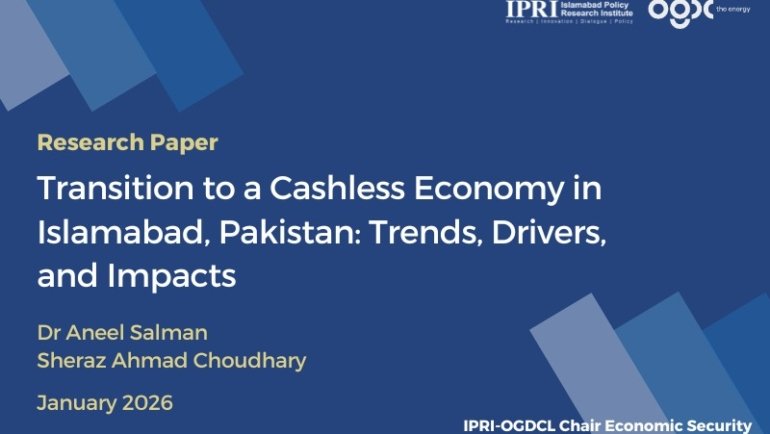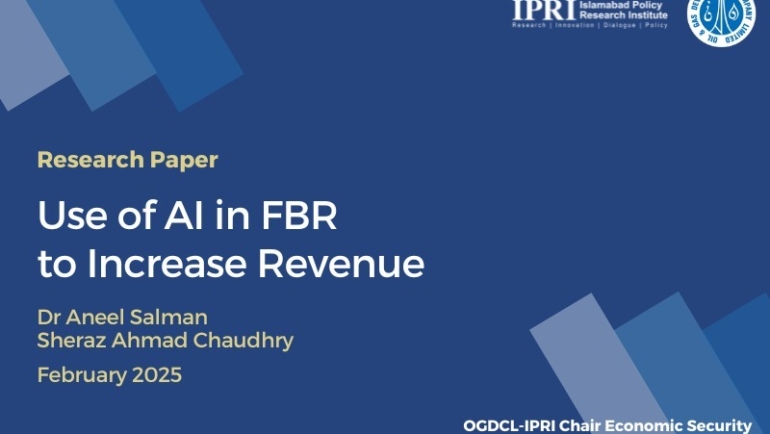This study examines the increasing impact of automation and artificial intelligence (AI) on employment patterns in Pakistan’s major economic sectors, such as manufacturing, agriculture, logistics, energy, construction, and services. As labour-intensive sectors make up the backbone of Pakistan’s economy, AI adoption presents opportunities for increased productivity as well as threats of large-scale job losses. The analysis finds that as much as 60% of Pakistan’s workforce could be at risk of being automated, especially in repetitive and low-value tasks in the textile industry, agriculture, transportation, and office work. Sector-level vulnerabilities are noted as the research identifies new patterns in the use of AI, including smart manufacturing, precision farming, automated warehousing, and AI-based customer service. The report also assesses Pakistan’s readiness to transition to these changes, highlighting a high digital and skills deficit, particularly among young people, women, and those living in rural areas. In response to these challenges, the paper suggests practical policy recommendations such as targeted reskilling programs, education reforms, vocational training expansion, and digital inclusion policies. Finally, the study highlights that AI can transform inclusive development if it is supported by active, people-oriented policymaking.


